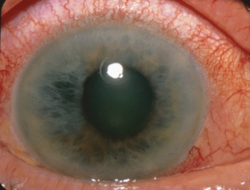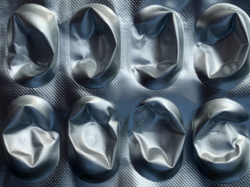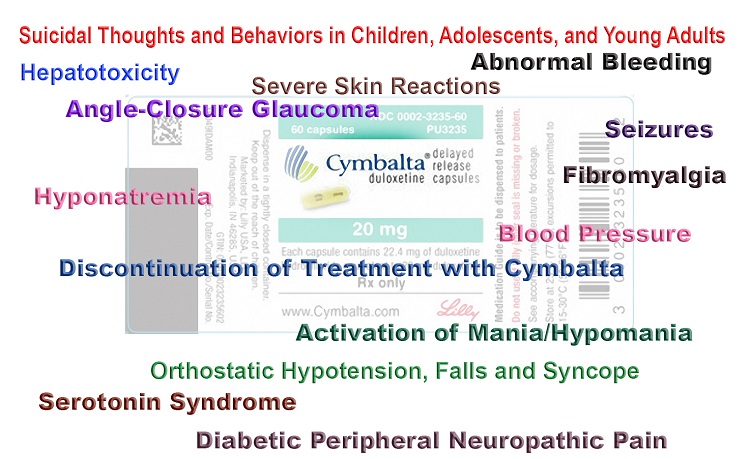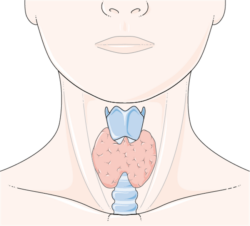Early Alcoholism: A Precursor to Thiamine Deficiency and Dysautonomia
When I was in my 20’s, I was an alcoholic student in a Nordic country. I was a perpetual student enrolling every year, but getting very little done. I mostly read and drank. I stopped drinking in 2015 because it was too tiring to be drunk all the time. Stopping wasn’t difficult. I didn’t get any joy of alcohol anymore anyway. I became fit, resumed studies, and graduated in 2018. I went on a vegetable-based low carb diet and took B vitamins thinking I might need them after years of drinking. I felt fine. I was a little overweight but not too much. I also took a handful of basic vitamins and magnesium, in addition to the B complex. I had four years of a pretty healthy life before everything fell apart and I developed a variety of dysautonomia symptoms related to thiamine deficiency.
The Emergence of Dysautonomia
In February 2020, I became ill with a myriad of symptoms. I had costochondritis. (Defined as “an inflammation of the connective tissue where the ribs attach to the breastbone .Characterized by dull to sharp pain at the front of the chest wall that may radiate to the back or abdomen.”) I had constipation to the point of impaction, I couldn’t regulate my temperature, and kept shivering under several blankets. I wasn’t able to swallow properly because food got stuck in my throat.
In March the Covid-panic was at its worst and I sat tight at home, thinking I’d just need to weather it out rather than make an appointment with my doctor and risk getting Covid. During this time, I had constant vertigo and had to hug the walls of my house as I moved around. Vertigo made me motion sick.
In May things looked up, the panic had changed into hopeful masking. The state I lived in hadn’t gotten its first wave yet and so I made an appointment with my doctor. I left with motion sickness medicines and routine labs done, which showed nothing remarkable. I was able to recover from the costochondritis and constipation. I was using laxatives now regularly. It didn’t bother me after the agony of an impacted colon.
I was now having fulltime dysautonomia, with hypothermia and vertigo being the most prominent symptoms. I still had difficulty swallowing but it was something I decided was psychosomatic because of the stress. I just ate very carefully and avoided things that would make me choke.
Stumbling Onto Thiamine Deficiency
I ran into Hormones Matter blog after joining a reddit group r/dysautonomia. One poster kept repeatedly posting “thiamine deficiency” to people describing their symptoms and quoting parts of Thiamine Deficiency Disease, Dysautonomia and High Calorie Malnutrition by Lonsdale & Marrs. I bought the book and read it.
I went to see my doctor again, telling her that I wasn’t recovering. I asked to get whole blood B1 tested, she refused saying I don’t look like I had beriberi, with a chuckle. That hurt. Pictures of beriberi patients are invariably people who are emaciated to the point of starvation. I am still slightly overweight.
I began high dose thiamine in October 2020 on my own.
I started taking Allithiamine and later Thiamax. I tolerated the TTFD (thiamine tetrahydrofurfuryl disulfide, a thiamine derivative used in the formulations for Allithiamine and Thiamax) fabulously. I titrated the dose per symptoms until I felt fine. I was startled how high I needed to go. At times in December, I was at 400-500 mg TTFD per day + 300 mg of benfotiamine during the night. I would notice the effect wearing off in 4 hours and needed to re-dose because all the symptoms came back.
My Experience with Thiamine Supplementation
My experience with TTFD was head clarity and enormous sense of wellbeing. Benfotiamine made my temperature regulating issues go away and gave me good sleep. I was often having bouts of hypothermia when ill and shivering under blankets. Benfotiamine helped in this more than TTFD.
TTFD solved the constipation and swallowing issues, which would support the vagal lesion theory. Lonsdale describes gastroparesis and dysphagia as a “central lesion” in the GI tract affected by beriberi. I noticed the effect of feeling GI peristalsis kick start and make a sort of “chugging” motion after I took TTFD. If I ate steak, I made sure to take TTFD before because it made my swallowing effortless. Previously, I always had choking hazard because bits of meat would get stuck in my throat and I had to flush them down with water.
I took other B vitamins individually to supplement. The amounts were the same as most B complexes. I took 300 mg of magnesium taurate through the day and 1/2 teaspoon of potassium chloride in water through the day as well. I began taking 150 mcg of molybdenum and 200 mcg of selenium. I took one drop of iodine a day too. I listened to Elliot Overton’s talks about TTFD.
Titrating the Supplements Down After Recovery
Over the spring, I was able to reduce TTFD, going down about 50mg a month, most months. If I felt symptoms coming back – the coldness, vertigo – I decided I wasn’t ready for nipping more off and resumed the previous months’ dose where I felt fine. I have been off of TTFD now since June and completely symptom free from my dysautonomia, constipation, vertigo, swallowing difficulties, continuous nausea – all since April.
I’m still intolerant to many supplements, but I can take Thorne’s Basic B to keep covering the B’s. I still take magnesium and potassium with the B complex, occasionally molybdenum and selenium in small doses. Iodine, if I remember. I don’t know if they contributed any, but they may have.
I must mention that years past when I took Basic B, I felt nothing. Now, I feel a bit energized after taking it and I have a bowel movement. This is similar to my experience with TTFD. I believe that TTFD has enabled me to uptake the regular thiamine HCL, and that for some reason with my history of heavy drinking and bad nutrition, my early beriberi-affected system was not able to transport thiamine HCL that was in the B complex. However, now it feels like it does. I will try to get the other nutrients from food.
What I did not do:
- megadose any other B vitamin
- address any oxalate issue
- make any dietary changes. I kept eating the same low carb I always ate
- address any histamine issue
I did not do any of those because I was making progress with TTFD and B complex with the usual minerals.
My illness wasn’t long compared to others that I have read about. That may be also why recovery was swift. I also had a pretty good nutritional status to begin with, with magnesium and potassium on board – and probably no other vitamin deficiencies. This is my story. I am forever grateful for Drs. Lonsdale and Marrs for the book and this website.
We Need Your Help
More people than ever are reading Hormones Matter, a testament to the need for independent voices in health and medicine. We are not funded and accept limited advertising. Unlike many health sites, we don’t force you to purchase a subscription. We believe health information should be open to all. If you read Hormones Matter, like it, please help support it. Contribute now.














Hi Linus,
I found your post very informative and am glad you included your dosing info! I have worked up to ~600 mg TTFD/day or 2,000 mg Benfotiamine/day, not really knowing when to stop… I think I could be at the point of trying to titrate down. (I felt completely better a few weeks ago, then suddenly a lot of fatigue came back… I’m thinking it may be due to magnesium and just got magnesium malate to try).
Anyways, how are you doing now? Would love to hear an update!
Thanks for sharing, Linus. I relate to a lot of your story, I am a former college student turned alcoholic with vertigo that kept getting worse over time. I also didn’t have trouble dropping booze but recovering from alcoholism has been difficult and confusing. Your mention of what you did NOT do is a breath of fresh air — especially in an age of brand-name protocols and regimens. I bet you gave some people who follow Ray Peat a heart attack when you said you didn’t change your low carb diet. I’ve stopped tip-toeing around TTFD as of yesterday, thanks to inspiration from reading your post, and took 500mg yesterday in divided doses throughout the day. I am starting to FEEL again.
Ann, you have answered your own question——-coffee and junk food. She has beriberi. Read all the many posts on this forum or buy the book referred to in the post by Linus.
I was wondering if anyone can help me. My 33 year old daughter has not had good health since college. She lived on coffee and junk food and had many UTI’s She took so ma many antibiotics and then the birth control pill. Her health continued to go down hill. She then got unexplained pelvic pain. She took gabepentin for two weeks and that is when her life changed. She now can barely get out of bed. She has severe swelling of her hands and feet it is very painful but not pitting. It has been six months since she took the last Gabapentin pill. All her blood test look normal. She has lowiish potassium, magnesium, and folate. D is at 56. She usually doesn’t tolerate vitamins well and has to go slow with them. Could this be a B1 deficiency? Is there a doctor who treats this? Is there any hope for a normal life for her?
Once there was talk how thiamine deficiency created a physiological landscape to protect the body.
I think it was Dr Marrs’ calcium management and heart symptoms -series.
To shield itself from refeeding syndrome and sudden thiamine uptake, the body prefers a chronic thiamine deficiency possibly by downregulating SLC genes.
I believe this may have happened to me and recovery via forms that use active transportation (the HCL form in the B complex) vs. TTFD did not correct my status.